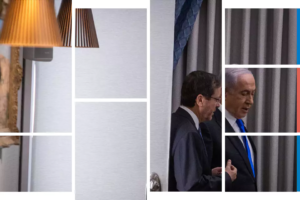
Shafaq News – Baghdad
When Mohammed Shia al-Sudani assumed
the premiership in 2022, he declared a clear priority: building a “services
government.” From electricity and water to healthcare and education, his
cabinet pledged to reverse Iraq’s chronic infrastructure failures. But nearly
three years into his term, many Iraqis see little improvement, raising a
pressing question: how much of the country’s persistent service failure falls
on al-Sudani himself?
From Promise to Disappointment
Al-Sudani’s government identified key
priorities: fighting corruption, improving public services, stimulating the
economy, enhancing national security, and resolving federal disputes with the
Kurdistan Region. On paper, the focus was comprehensive and ambitious. In
practice, however, delivery has lagged far behind public expectations.
The Prime Minister has repeatedly
emphasized anti-corruption efforts, infrastructure development, and economic
diversification. Still, Iraqis continue to suffer from recurring power outages,
water scarcity, and poor health and education services. The symbolic slogan of
a “government of services” now risks eroding public trust as the realities on
the ground diverge sharply from official rhetoric.
Mounting Frustrations and Heatwaves
The current summer has seen
electricity failures spike dramatically amid soaring temperatures above 50°C,
forcing many provinces to suspend work and schools.
Political analyst Abbas al-Jubouri
told Shafaq News that “there is clear negligence across all services,
particularly electricity,” noting that drought-induced water shortages, stalled
projects, and the delayed disbursement of the federal budget have all worsened
the service crisis.
“The government made promises, but the
situation in Baghdad and other provinces is visibly deteriorating,” al-Jubouri
added, arguing that basic infrastructure projects like roads and bridges—now
hailed as achievements—should have been the norm, not exceptions.
Political Structure or Executive
Failure?
Critics are divided on where ultimate
responsibility lies. Political analyst Mujashaa al-Tamimi argued that while
al-Sudani’s administration carries part of the blame, Iraq’s systemic flaws run
deeper.
“Service deterioration did not start
with this government,” al-Tamimi said, noting that since 2003, successive
cabinets have promised reforms that largely remained “ink on paper.” He pointed
to Iraq’s entrenched ethno-sectarian power-sharing system, or Muhasasa, as a
major obstacle: it prevents the appointment of qualified officials, empowers
party loyalties over state performance, and shields corruption.
Al-Tamimi also emphasized the absence
of effective oversight mechanisms and political stability, which he believes
have rendered the legislative branch incapable of imposing executive
accountability.
Despite what he described as “some
visible achievements” by al-Sudani’s government in limited sectors, political
interference and appointments based on loyalty have curtailed the Prime
Minister’s ability to lead sweeping reforms.
Civil Society Response and a Warning
from October
Civil society voices echo a growing
sense of frustration. Activist Noor Salem told Shafaq News that the political
class, especially ruling parties, bear primary responsibility for the
deterioration of services. He argued that the lessons of the 2019 October
protests—which triggered government resignations and political reckoning—were
not absorbed by the ruling elite.
“The system has regressed,” he said.
“What we’re seeing now—sectarian quotas, project mismanagement, and
administrative chaos—is worse than what triggered the October Uprising,” Salem
warned of rising public anger and hinted at renewed protest movements if the
situation remains unchanged.
His warning is underpinned by a
financial reality: despite massive spending over recent years, infrastructure
and service outputs remain modest. Delays in passing the 2025 budget tables are
adding fuel to popular dissatisfaction.
Budget Paralysis and Institutional
Decay
Parliamentary voices, such as that of
Mahdiya al-Lami from the Services and Reconstruction Committee, offer a mixed
diagnosis. Al-Lami acknowledged that protests are constitutionally protected
and a legitimate response to poor services. She attributed the crisis partly to
chronic underfunding and, at times, the complete absence of financial
allocations.
“Despite passing the tripartite budget
law, budget schedules haven’t yet reached Parliament,” she explained,
describing widespread institutional paralysis across ministries and
departments. She also blamed delayed projects, rampant corruption, and the lack
of administrative and technical capacity.
More significantly, al-Lami pointed to
a broader decay in national responsibility and vision. “There is no genuine
political will to reform or deliver,” she said bluntly.
Accountability in a Captive System
While al-Sudani’s term has not been
devoid of progress, especially in launching select infrastructure and
employment initiatives, the failure to deliver comprehensive service
improvements is increasingly viewed as a leadership shortfall. However, as analysts
and lawmakers agree, he operates within a dysfunctional structure that limits
reform.
With time running out and popular
discontent deepening, al-Sudani faces a critical test: either break the
political mold or become yet another prime minister who promised services and
delivered frustration.
Written and edited by Shafaq News
staff.





